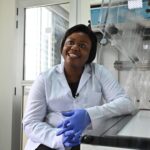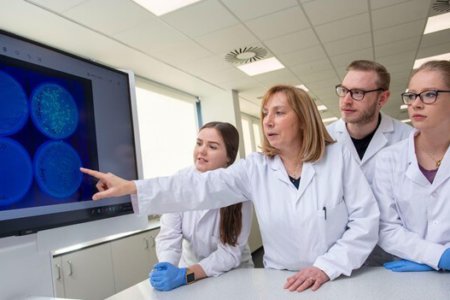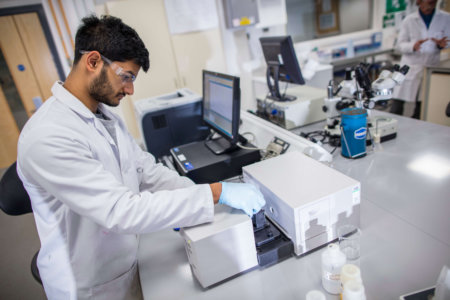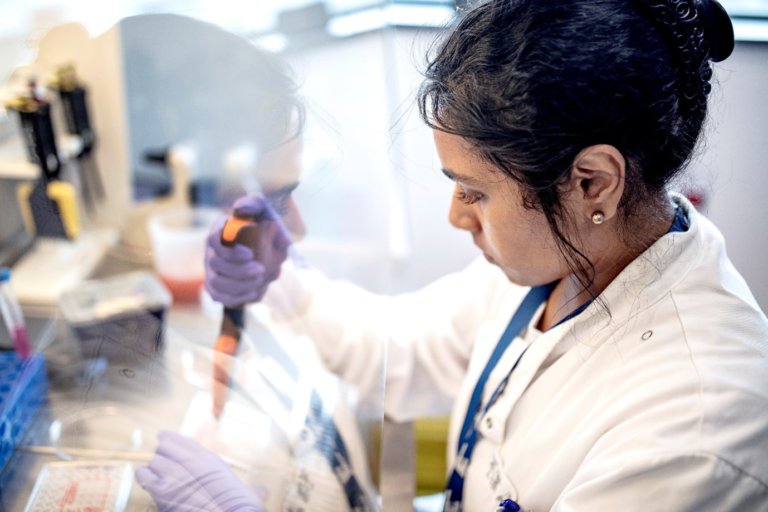
Are you curious about how the body works? Intrigued to find the causes of diseases? Do you wish to find new treatments for health conditions? If one of these questions applies to you, a career in biomedicine may just be what you’re looking for.
Biomedical scientists are pioneers in the healthcare and science industry. They are the professionals responsible for creating solutions to medical problems in today’s world, from developing vaccines to improving patient care, conducting forensic research and more.
It’s a wide-ranging discipline, which means that you can pursue a range of career options. Such an extensive topic also means that it’s one of the toughest qualifications. It’s not just skills that you’ll need to excel in the biomedical field — you’ll need to choose a suitable university that offers exemplary research portfolios, unrivalled teaching quality, promising placements, accredited programmes and state-of-the-art facilities. Here are the top biomedical schools that offer just that:
University of Plymouth
Zoom in on the county of Devon, England, and you’ll find excellence in every respect. Here lies the University of Plymouth — a broad-based, research-intensive university that sits on the idyllic South Devon coastline at the waterfront city of Plymouth.
At the School of Biomedical Sciences, students are evolving into future biomedical scientists, nutritionists and cardiac physiologists. They learn from faculty members with cutting-edge research expertise — in cancer drug development, infection, and molecular biology — and through practical facilities, placements and taught real-world interactions so you can experience the profession while you learn. .
Pair such hands-on learning with teaching from subject-matter experts, and students are set to become tomorrow’s specialists in industry and research. Clinical lecturers are registered with professional bodies and practise in one of the largest teaching hospitals in the country. Their real-world experiences — in topics such as cardiac physiology and biomedical science — supplement students’ theoretical understanding developed from lectures, books and practical classes.
Such education develops students into highly sought-after graduates with terrific placement opportunities. Plymouth students work with some of the biggest names in pharmaceuticals or undertake clinical diagnostics with the NHS as part of its Applied Biomedical Sciences programme.
The best part? The School of Biomedical Sciences offers an extensive range of programmes, most of which are accredited by top associations: BSc (Hons) Biomedical Science; MSc Biomedical Science; BSc (Hons) Nutrition, Exercise and Health; BSc (Hons) Human Biosciences; and BSc (Hons) Clinical Physiology. The school also offers a foundation route: BSc (Hons) Biomedical Science with Integrated Foundation Year. Click here for a chance at a brighter future.
King’s College London

King’s College London offers an innovative and integrated Medicine MBBS curriculum. Source: King’s College London
King’s College London offers an innovative and integrated Medicine MBBS curriculum. Source: King’s College London
At King’s College London, authentic clinical and research experiences bring medicine to life. Inspiring teachers merge biomedical sciences, population sciences and clinical practice to foster students into caring, competent and safe doctors. King’s MBBS benefits from partnerships with three prestigious London teaching hospitals – Guy’s, King’s College and St Thomas’.
Students can take part in clinical placements at district general hospitals located across the southeast of England and over 350 general practices. “I’ve had clinical placements everywhere, from hospitals in London to district generals in Kent, all of which have been brilliant,” shares graduate Annabelle. For their elective modules, they can go on clinical exchanges with leading medical schools around the world.
The programme is divided into three stages. It starts with a foundation in biomedical sciences and population sciences, along with the skills to begin to integrate them with clinical practice. In the second stage, students will focus on the care of patients with common conditions in a range of clinical settings, following patients for prolonged periods of time to learn how to deliver whole-person care. The majority of the third stage will be clinical and includes quality improvement projects and the development of skills to transform patient and population health at home and abroad. Also integrated in the curriculum are inter-professional training and increasingly realistic simulation.
As King’s is a multi-faculty university, students can access a breadth of non-core subjects including humanities and social sciences. Accredited by the General Medical Council (GMC), King’s MBBS is a Primary Medical Qualification — this means the holder to apply to the GMC for registration to practise medicine in the UK.
University of Liverpool
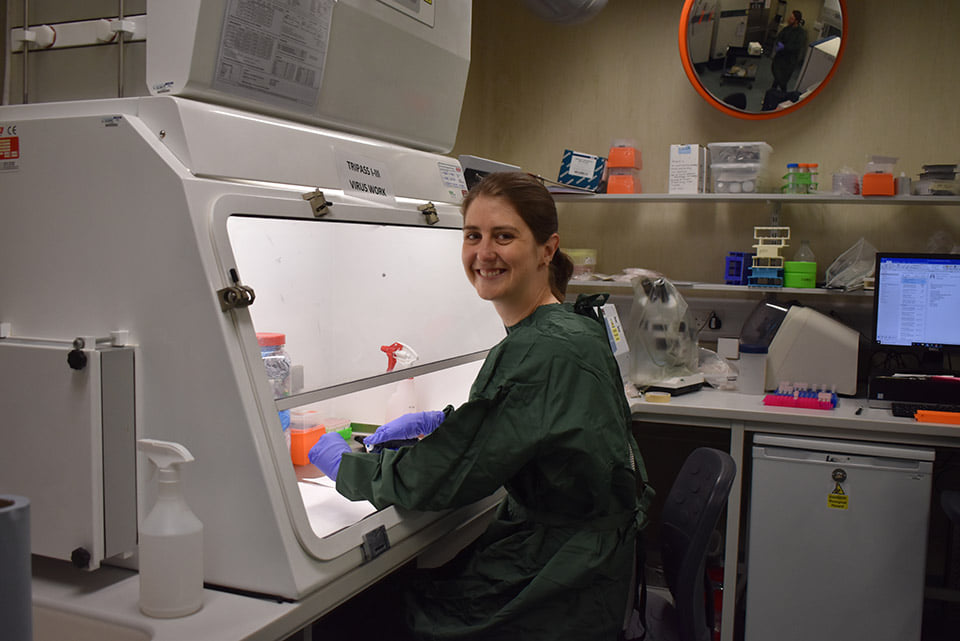
Biological science has a long and rich history at the University of Liverpool. Source: University of Liverpool/Facebook
Since its establishment in 1881, the University of Liverpool has always stayed true to its mission: pushing for the advancement of learning and ennoblement of life. The university is an inspirational learning centre with robust research curricula and a strong international student community. It has more than 22,000 students on campus, out of which over 7,700 are international. That’s not all — the university has more than 10,000 students from 160 countries studying online. Little wonder why students flock to the university.
For a biological science education, look no further than the University of Liverpool. Biological science has a long and rich history at the University of Liverpool (over 100 years!), making it the melting pot for science aspirants. Student Ching Chen, pursuing the BSc Biomedical Sciences, can attest to this.
“Liverpool is a hub for students from all parts of the UK and around the world, so I enjoy learning about different cultures whilst learning from lecturers at the peak of their careers and research,” explains Chen.
All of these take place within the university’s state-of-the-art facilities. Here, more than £30 million have been invested into the Biology Teaching Centre, the cutting-edge Biosciences Building, the Biomedical Sciences Building and the Human Anatomy Resource Centre, all of which boast a thriving biomedical science campus in the heart of Liverpool.
Not sure what to pursue in the field of biological science? The university boasts critical topics covered by programmes with breadth and depth, from anatomy and human biology to biochemistry and bioveterinary to marine and ocean sciences. No matter which programme you choose, a biological science education at the University of Liverpool is unrivalled — a fact Cancer Biology PhD student Mateus Milani can confirm. “The University of Liverpool is one of the best universities in the world, renowned by the scientific community and home of several Nobel Prize laureates,” explains Milani.
*Some of the institutions featured in this article are commercial partners of Study International




